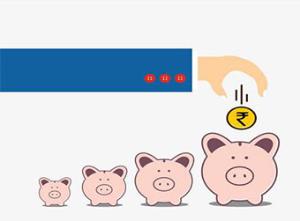3 risks every startup entrepreneur should manage
Blog Title
442 |
“The biggest risk is not taking any risk. In a world that changes really quickly, the only strategy that is guaranteed to fail is not taking risks.” Mark Zuckerberg
Entrepreneurship is in trend. More and more people around the world are becoming job creators than job seekers. In India, Government programmes like Startup India and, Stand up India are fuelling the entrepreneurship drive. All these are good signs. In the long run, entrepreneurship movement would benefit the society at large.
Daily we are reading about multi-million dollar deals. People are becoming super rich at a young age by selling their stakes in their own startup. Entrepreneurship is exciting, entrepreneurship can make you rich, entrepreneurship is liberating but it’s not easy to survive in a world that tests your strength every single day.
There are certain cautions one needs to exercise while venturing into the world of entrepreneurship. About 20% of the startups survive the first year. Half of all businesses do not survive beyond 5 years.
We, Edelweiss Tokio Life are in the business of risk management. Understanding the risk to manage it is our forte. Similarly, as a startup entrepreneur, understanding and managing risks are vital to surviving beyond the initial years of high mortality.
There are three key areas of risk you need to consider.
1. Business Risk:
The top three reasons why businesses fail in the initial years are;
- No market need
- Ran out of cash
- Not the right team
Like the post-mortem, there is a concept of pre-mortem. In the pre-mortem analysis, the team assumes the worst has happened. Then they analyse the reasons what could have gone wrong.
From this interesting exercise beforehand, the team tries to find what could go wrong. This exercise tells the team what precautions they need to take to avoid foreseen failure.
To avoid the scenario of ‘no market need’, an elaborate market survey, understanding customer needs, competition analysis, and market gaps would be helpful.
To avoid death due to the cash crunch, adequate cash flow management, receivable /payable policy, long-term/short-term fund mismatch, contingency planning, knowing various sources of funds and how to tap these sources etc. would be of help.
The team is the core foundation of any business. Making an advance written understanding of the roles and responsibilities of the team members, investments expectations, dispute resolution mechanism etc. mostly take care of the disputes and differences. Before starting a venture, strengths and weaknesses of all the team members should be discussed.
Everything can’t be planned or foreseen but pre-mortem analysis largely mitigates foreseen areas of risk.
Handpicked related post: Precautions in times of easy availability of loans
2. Career Risk:
Yes, starting a venture is also risky from your career perspective.
What if the business fails? Have you learned your lesson? What skills have you learned? How your résumé would improve?
What is the opportunity cost of starting a venture vis-a-vis doing a job? Monetary and non-monetary, both costs are important to evaluate.
Even if you had to return to employment, your 1st hand entrepreneurship experience should be able to bridge the gap of your lack of employment experience.
“It’s fine to celebrate success but it is more important to heed the lessons of failure.” Bill Gates
3. Social Risk:
In our society failure is considered a disease. This is one of the reasons people afraid to become an entrepreneur. Entrepreneurs need to have a temperament to deal with the failure. Not everyone has this kind of temperament.
However, people who succeed know how important it is to fail. They also know how important it is to ignore people who criticise failure. Success is the destination reached only via failure.
“Success is walking from failure to failure with no loss of enthusiasm.” Winston Churchill.
Learn from the success stories of others to sustain your enthusiasm and how to deal with the social risk.
4. Family Risk:
Entrepreneur’s family is also at risk. For a financially dependent family, the business venture is a risk. In the event, the business fails or it becomes NPA with the bank, the family’s financial safety is at stake.
Entrepreneurs with dependent family need to manage this risk. For a young entrepreneur, without a dependent family, risk appetite is more. This more appetite makes them take more risk. Similarly, people with risk mitigation plans in place can take more risk. This could be a reason for a successful business venture.
Everything in life is a risk, but the winners are the people who can mitigate the risk beforehand or manage it as and when it becomes a reality.
“Anticipate the difficult by managing the easy.” Lao Tzu.
Risk management in advance is easier than managing the risk when the incidence happens.
Seth Godin puts it very well,” Emergency response is overrated compared to emergency avoidance.”
Take a risk, but know your risk. Keep your risk mitigation plan ready in advance.
Tell us how you mitigated risk, share the experience of your entrepreneurial journey.












